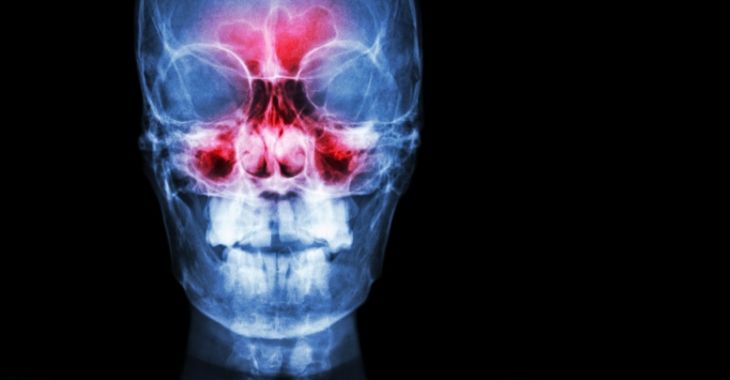What You Need to Know About Sinus Headaches

A severe headache can ruin your day. It can be difficult to concentrate, you may be irritable, and you may be sensitive to light or sound. A sinus headache has all these components and more, with tenderness and pressure on the eyes, nose and forehead. It is important to know when you have a sinus headache versus a typical headache to find the right treatment to give you relief.
What Is a Sinus Headache?
The sinuses are located behind your nose, cheekbones and forehead. When these air-filled passages become inflamed, the mucus they produce can become trapped in the passages instead of draining to the nose. When this occurs, it causes pressure and pain in the forehead, behind the eyes, and at the top of the nose. This is a sinus headache, creating a throbbing pain through the front portion of the head.
Treatments for Sinus Headaches
Sinus headaches often will not dissipate with OTC headache medications like acetaminophen or ibuprofen. Since the source of the discomfort is congestion of the sinuses, you may need a decongestant as well as an pain reliever. OTC sinus medication can help relieve a temporary sinus headache, often containing both decongestants and pain reliever.
Sinusitis or congestion from allergies can lead to sinus pain and pressure. Acute sinusitis can last for a few weeks, while chronic sinusitis can last for 12 weeks or more. For those with ongoing sinus headaches, they may need treatment for their allergies or chronic sinusitis.
If you suffer from sinus headaches that are affecting your quality of life, find treatment to get relief. Schedule a consultation and exam with a sinus specialist to explore options to stop your sinus headache pain.
Posted on behalf of:
New York Sinusitis Treatment
Columbus Circle Office
200 W. 57th Street Suite 1410
New York, NY 10019
(212)784-6643
The information provided on this website, including text, graphics, images, and other materials, is intended solely for informational purposes and should not be used as a substitute for professional medical advice, diagnosis, or treatment.



)